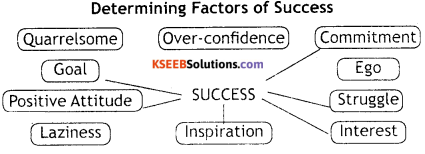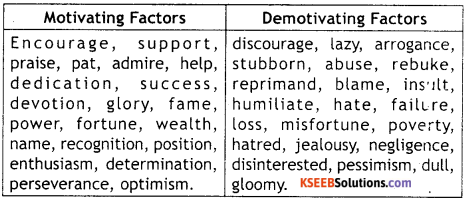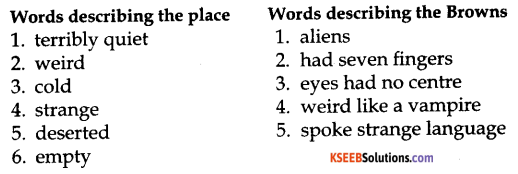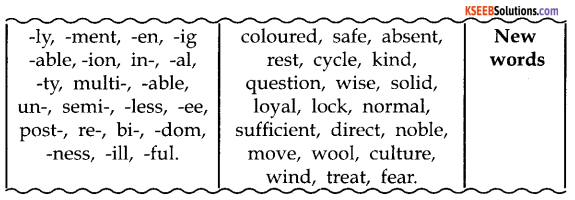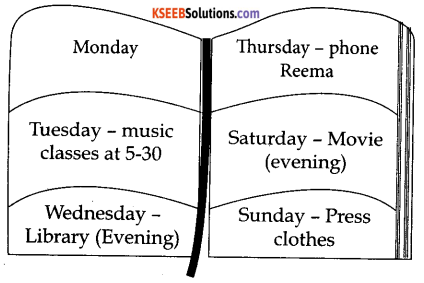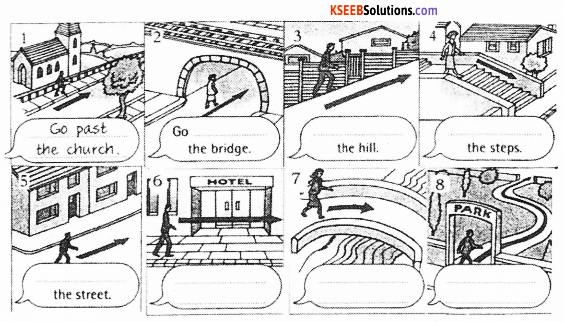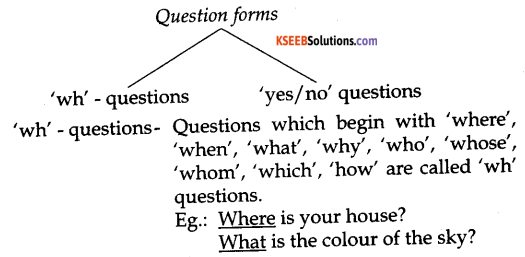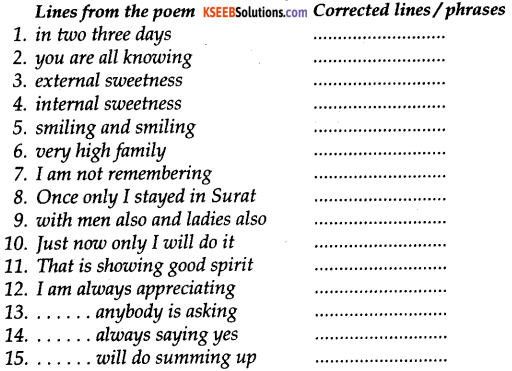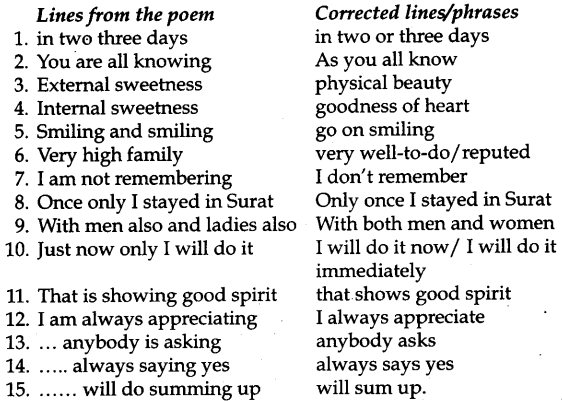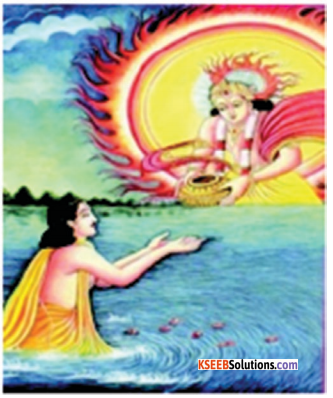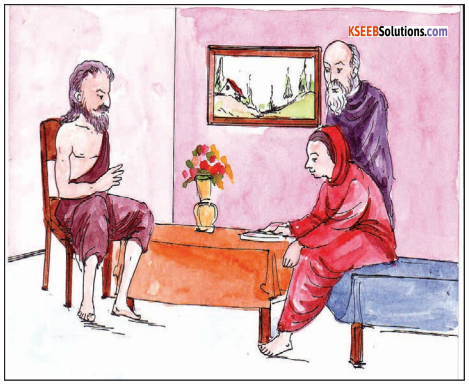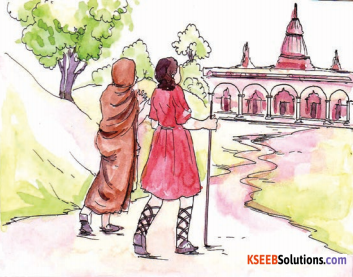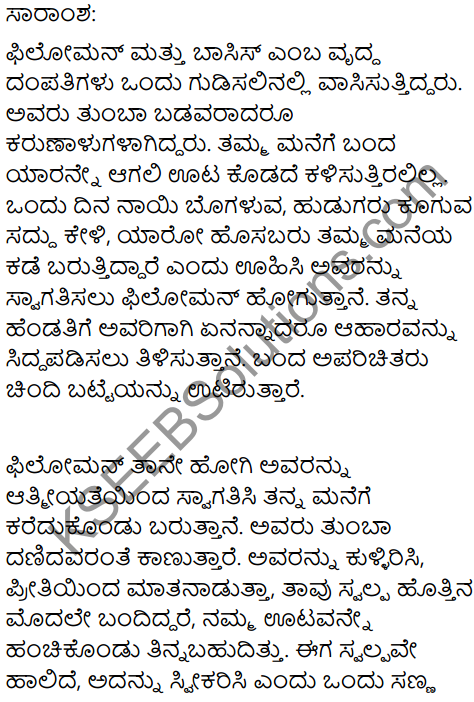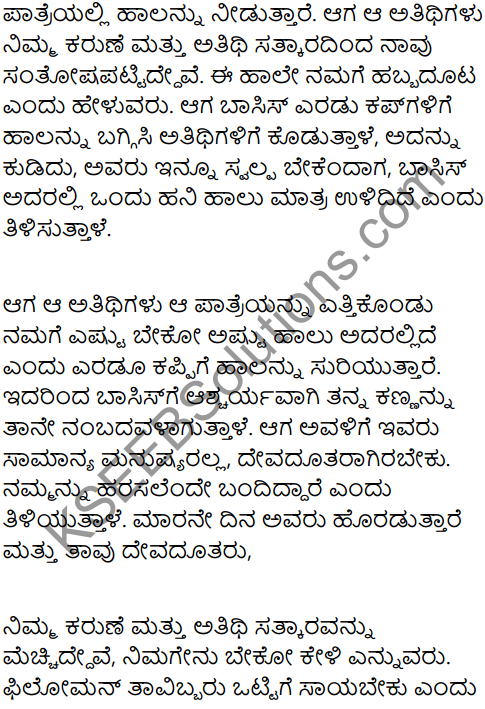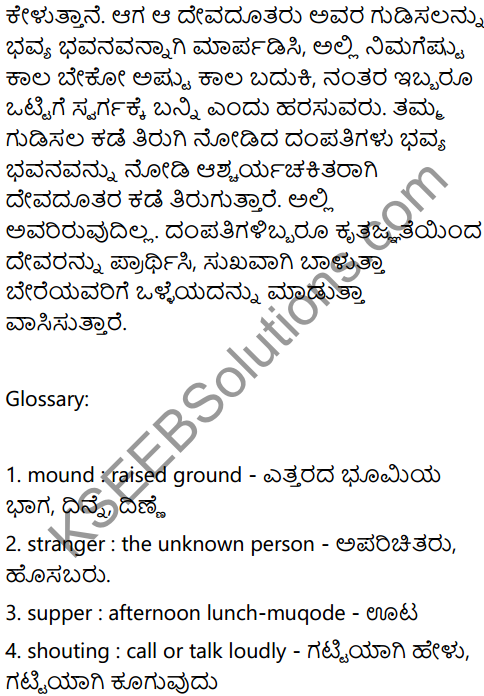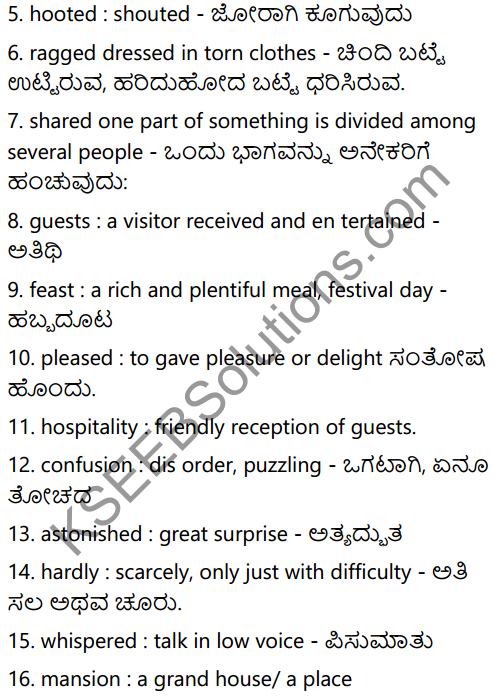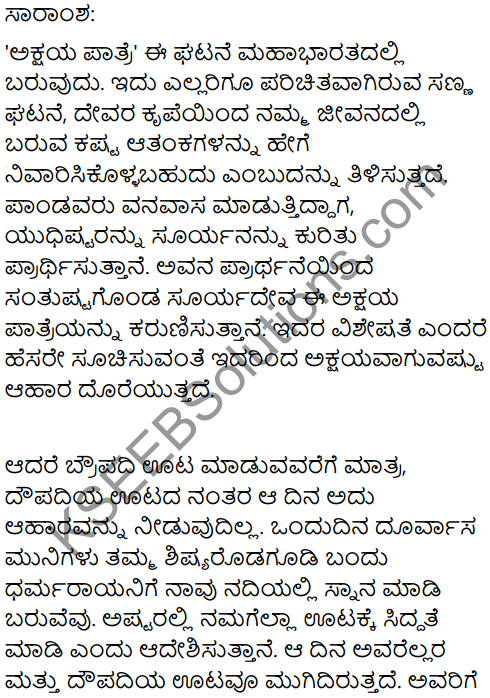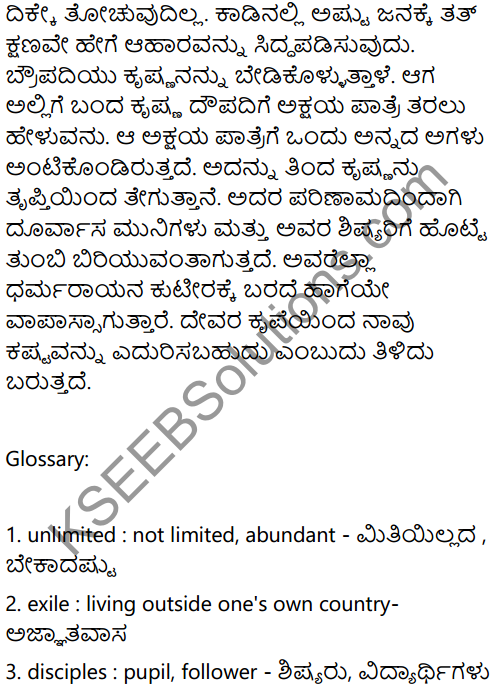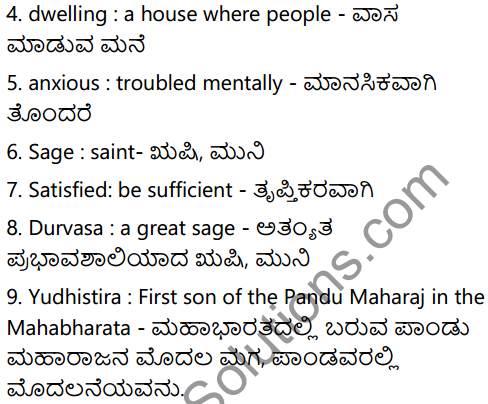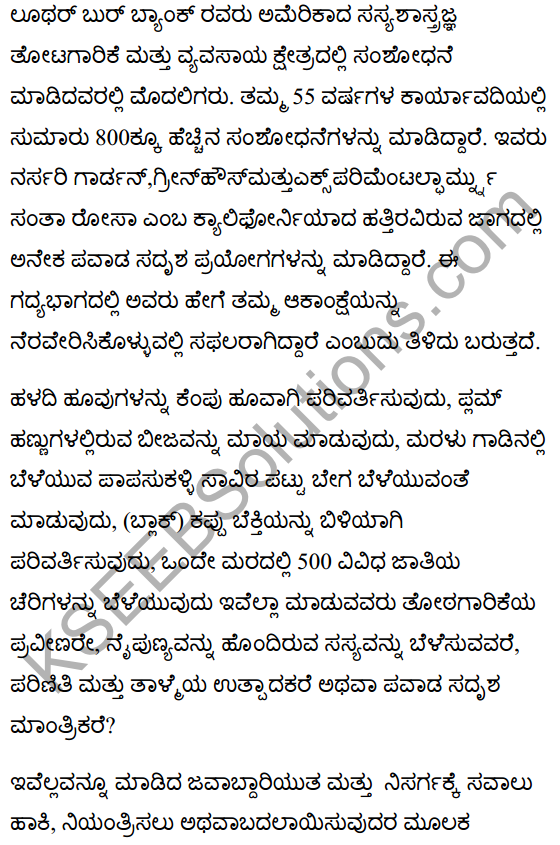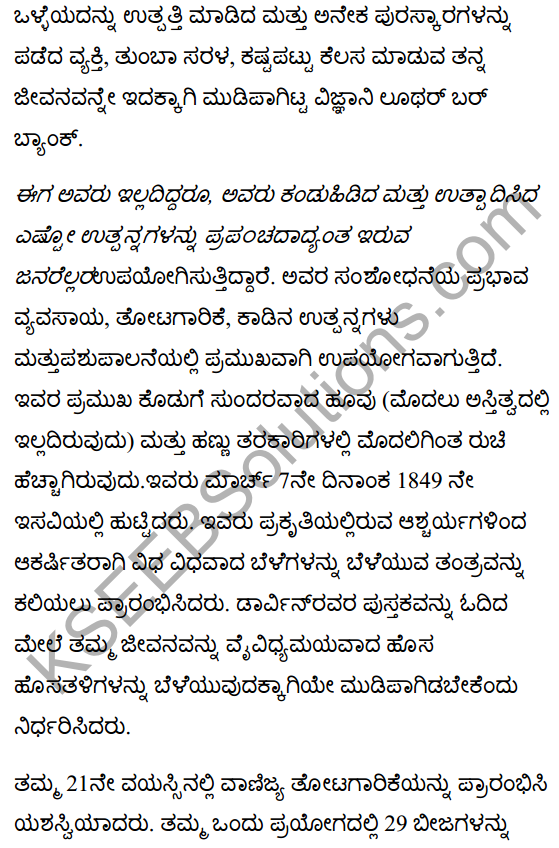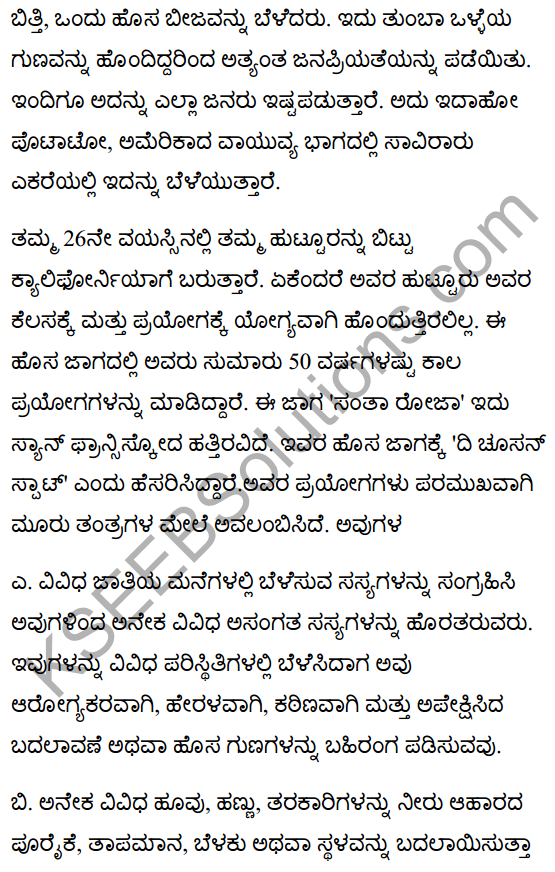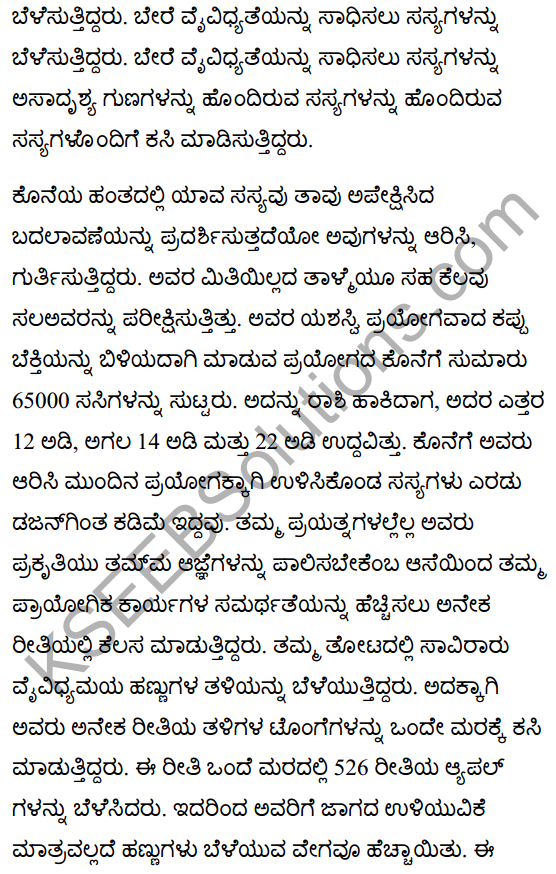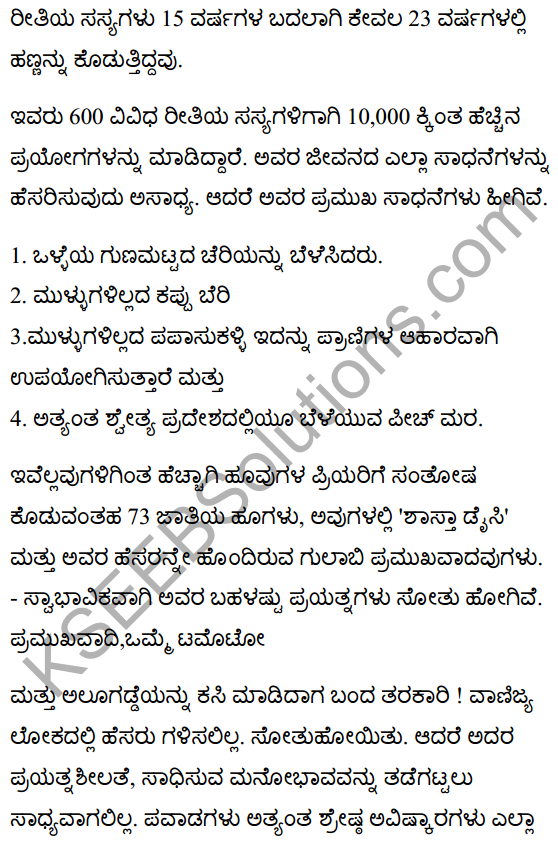Karnataka Solutions for Class 8 English Poem Chapter 16 The Cloud Questiona and Answers are prepared according to the latest academic syllabus. So refer our Karnataka Secondary Education Examination Board Class 8 English Solutions to score good marks in the exams. Tap the link and Download KSEEB Solutions for Class 8 English Chapter 16 The Cloud to cover all the topics.
Karnataka State Board Class 8 English Poem Chapter 16 The Cloud
With the help of the Karnataka Secondary Education Examination Board Class 8 English Solutions Chapter 16 The Cloud Questions and Answers Pdf, Notes, Summary you can get an idea about the subject. Also we suggest the students keep the textbook aside to learn the subject in depth.
The Cloud Questions and Answers, Summary, Notes
I. Comprehension:
A. Answer the following in a sentence or two each:
Question 1.
Who is the ‘I’ in the poem?
Answer:
It refers to the cloud.
Question 2.
What does the cloud do when leaves are laid in their dreams?
Answer:
It provides light shade for the leaves.
Question 3.
How is the cloud related to earth, water and sky?
Answer:
The cloud is the daughter of the earth and water. It is the nursling of the sky.
Question 4.
What happens after the rain?
Answer:
The pavilion of Heaven becomes bare. The winds and the rays of the sun build up a blue dome of air.
B. Answer the following in about one hundred words each:
Question 1.
The cloud is personified throughout the poem. Explain.
Answer:
Personification is a figure of speech in which human qualities are attributed to non-living things. The cloud is a nonliving object. In the poem, the cloud tells what it is and what it does like a human being. It brings rain and provides shade, it makes the sweet buds blossom. It wields the flail of hail like the man who threshes the grain with a flail. It dissolves the hailstones. It laughs as it passes in thunderstorms. It is personified as the daughter of the earth and water and a baby who is taken care of by the sky. After the rain the sky becomes clear and the cloud arises again like a child from the womb of its mother, like a ghost from the tomb.
Question 2.
The poem ‘The Cloud’ is rich in imagery. Explain.
Answer:
Poets use imagery to heighten the effect of the poem. They use similes, metaphors to produce word pictures in the minds of the readers. This poem is rich in such word pictures. The image of flowers waiting for rain, the cloud providing light shade for the leaves sleeping at noon are the word pictures in the first stanza. The dew drops wakening the buds, the picture of the cloud wielding the flail of lashing hail, the picture of a little baby, the clear blue sky without the clouds and the cloud gradually building up again are the other pictures that come to our mind when we read the poem.
II. Appreciation Questions:
Question 1.
The first stanza tells us about the cloud’s activity. What does the cloud bring with it?
Answer:
The cloud brings rain from the seas and the streams.
Question 2.
The cloud is said to have wings and it shakes its wings. What happens when the wings of the clouds are shaken?
Answer:
The’dew drops fall on the sweet buds and the buds start blooming. They wake up the buds that have fallen asleep on the branches when the plant sways about in the sun.
Question 3.
In the third stanza, Shelley talks about the earth as a planet. The ‘flail’ is an instrument which is used to separate grain from the husk. How does the poet compare hail striking the earth and flail hitting the wheat?
Answer:
Man uses a flail to thresh grain. Just like the grains that get separated from the husk and fall on the ground, the cloud uses the flail and spreads the hailstones over the green plains.
Question 4.
The cloud says, ‘I change but I cannot die’, though the sky appears clear after rain. Explain.
Answer:
Cloud is a white or grey mass of condensed water vapour floating in the sky. After the rain these clouds disappear and the sky becomes clear. The cloud changes into water and falls down. Again, the heat of the sun makes water evaporate into the atmosphere. This water vapour forms the clouds. Hence, the cloud says I change, but I cannot die.
Question 5.
In the last stanza, after the rain, the convex gleams of sun make the sky look like a blue dome of air. The poet calls the blue clouds ‘Cenotaph’. Give reasons.
Answer:
The cloud is nothing but a mass of condensed water vapour. When it rains, all the condensed water falls down to the earth and the cloud disappears. The sky becomes clear and looks like a blue dome of air. A cenotaph is a memorial built in honour of soldiers killed in a war. In the poem the cloud gets killed after shedding its water. The clear blue dome of air appears to the cloud like a ‘cenotaph’ built in its honour.
III. Annotate:
Question 1.
“I wield the flail of the lashing hail And whiten the green plains under. ”
Answer:
The cloud in the poem says that it uses the flail of the lashing hail to spread the frozen pellets of rain over the green fields on the face of the earth. Just like the human beings who use the flail to thresh grain from the chaff, the cloud directs the – pellets of frozen rain to fall on the green plains.
Question 2.
“I am the daughter of earth and water,
And the nursling of the sky. ”
Answer:
The cloud considers it to be the daughter of earth and water. As we all know, the water on the earth gets evaporated by the heat of the sun into the atmosphere. The water vapour gets condensed and starts forming a cloud in the sky. The sky takes care of the cloud till it sheds water. Hence, it claims to be the daughter of the earth and water and a nursling of the sky.
Question 3.
I pass through the pores of the ocean and shores.
I change, but I cannot die.
Answer:
These lines are taken from the poem ‘The Cloud’. The cloud claims that it is immortal. It has no death. In a way what it considers itself is true. The water vapourises by the rays of the Sun and gets into the atmosphere. It passes through the openings in the oceans and shores till it reaches the sky and becomes the cloud. After rain, the cloud disappears. It has changed into water. It gradually rebuilds itself again. So, it says it cannot die.
Multiple Choice Questions:
Four alternatives are given for each of the following questions/ incomplete statements. Choose the most appropriate alternative.
Question 1.
The T in the poem refers to
A) the thunder
B) the fresh showers
C) the cloud
D) the sky
Answer:
C) the cloud
Question 2.
When the leaves are laid in their noon-day dreams, the cloud
A) brings fresh showers
B) bears light shade for the leaves
C) dances about the sun
D) whitens the green plants under it
Answer:
B) bears light shade for the leaves
Question 3.
The cloud is the daughter of
A) oceans and shores
B) thunder and lightning
C) seas and streams
D) earth and water
Answer:
D) earth and water
Question 4.
After the rains
A) the pavilion of heaven becomes bare
B) the cloud laughs at its own cenotaph
C) the cloud whitens the green plains under
D) the cloud bears light shade for the leaves
Answer:
A) the pavilion of heaven becomes bare
Question 5.
What happens when the wings of the cloud are shaken?
A) The green plants are whitened.
B) The dew drops fall on the buds and they start blooming.
C) It brings fresh showers for the flowers.
D) The blue dome of the air is built up.
Answer:
B) The dew drops fall on the buds and they start blooming.
Question 6.
The convex gleams of the sun make the sky look like a
A) cenotaph
B) womb
C) blue dome of air
D) ghost from the tomb
Answer:
C) blue dome of air
Question 7.
The poet calls the blue clouds a
A) cavern
B) tomb
C) womb
D) cenotaph
Answer:
D) cenotaph
Memorisation:
bring fresh showers for the thirsting flowers,
From the seas and the streams;
I bear light shade for the leaves when laid
In their noonday dreams.
From my wings are shaken the dews that waken
The sweet buds every one,
When rocked to rest on their mother’s breast
As she dances about the sun.
I wield the flail of the lashing hail,
And whiten the green plains under,
And then again I dissolve it in rain,
And laugh as I pass in thunder.
I am the daughter of earth and water
And the nursling of the sky;
I pass through the pores of the ocean and shores
I change, but I cannot die.
For after the rain when with never a stain
The pavilion of Heaven is bare,
And the winds and sunbeams with their convex gleams
Build up the blue dome of air,
I silently laugh at my own cenotaph;
And out of the caverns of rain,
Like a child from the womb, like a ghost from the tomb,
I arise and unbuild it again.
The Cloud Summary In English
Shelley imagines the cloud as a living being and ascribes individuality to her through a set of moving images. She is the daughter of earth and water and the nursling of the sky. She can speak, move and act like human beings. She brings fresh showers for the thirsty flowers. She bears light shade for the leaves and helps the buds to bloom. The cloud is whimsical and cruel too. She lashes the earth with hailstones and whitens the green field. But, this does not last long. Soon she brings torrential rain and the fields become green again. The cloud then disappears from the sky with deep roars of thunder.
Next, the cloud describes its origin; it says that it is the daughter of earth and water, and an infant nursed by the sky. It passes through the small openings in the oceans and the shores. It changes, but it does not die. The cloud is one thing and also many things; it changes its form but it is the same essence of life, growth and change in the nature. It is the agent of the cycle of life, for it changes seasons and sustains all living beings by bringing rain, giving shade, letting the sun shine when needed, and bringing dry autumn for plants to wither and give way to the next spring. It is not only gentle like a child, it is also terrible like a ghost; it supports the system of life ceaselessly and in numberless ways.
Glossary:
thirsting – thirsty
bear – carry
stream – a small narrow river
dew – tiny drops of moisture that form on cool surfaces at night
rocked – move regularly backwards and forwards or from side to side
flail – a wooden tool consisting of a stick swinging from the end of a long handle.
wield – to use
lashing – hitting with force
hail – frozen raindrops which fall as little hard balls of ice
plains – a large stretch of flat land
nursling – a baby who is taken care of by a nurse
pores – small openings
stain – a mark
pavilion – a large structure lightly built and intended to be used only for a short time.
Cenotaph – A monument built to honour soldiers killed in a war
cavern – A large cave
The main aim is to provide quality education for the students of Class 8 English Karnataka State Board Solutions. Class 8 is very important for the students in their career. We hope the information provided in this KSEEB Solutions Class 8 English Chapter 16 The Cloud Questions and Answers is satisfactory for all. Bookmark our site to get the latest information about the solutions.

